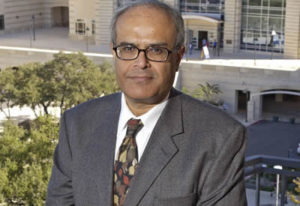Posted on April 9, 2020 by Wendy Frost
 The tourism industry was hit the hardest in the U.S. due to the outbreak of COVID-19. Although we think of large hotel chains when it comes to tourism, 80% of the tourism industry consists of small- to medium-sized companies. In San Antonio, the hospitality and leisure industry, a major driver for the regional economy, has seen its revenues drop substantially.
The tourism industry was hit the hardest in the U.S. due to the outbreak of COVID-19. Although we think of large hotel chains when it comes to tourism, 80% of the tourism industry consists of small- to medium-sized companies. In San Antonio, the hospitality and leisure industry, a major driver for the regional economy, has seen its revenues drop substantially.
It was initially thought that the impact of the outbreak would mainly be confined to operations in Asia, but the virus has spread globally and with great speed.
Two of the top tourist destinations in Texas include the Alamo and the River Walk and these attractions appeal to tourists from across the country. San Antonio tourism drives airfares, conference venues, restaurants and hotel room bookings and provides jobs to a large percentage of our population, not just in the downtown area.
The connectedness of these industries is positive in good times and a problem when times are difficult. In the face of an unprecedented challenge, the World Tourism Organization, with the support of the World Health Organization, is calling on innovators and entrepreneurs to put forward new solutions to help the tourism sector recover from the coronavirus pandemic.
Most manufacturers will be hit by their interconnectedness to other companies and countries. Toyota Motor Corp. chose the San Antonio area as the location for one of its newest truck manufacturing plants and relies on parts from around the world as part of the Just in Time manufacturing process that all manufacturers subscribe to for their components.
Even though China states it is recovering from COVID-19’s effects, it is still constrained by needed circuit boards and other manufactured parts from U.S. suppliers. Having just enough inventory on hand to do a day’s work was considered smart business and good for balance sheets. JIT will impact the technology, automotive, consumer goods and pharmaceutical industries, among others.
Even our hospitals keep minimal supplies on hand in order to be seen as efficiently managed. For pharmaceuticals, India produces half of our generic drugs and China produces over 90% of our antibiotics.
For Texas and the San Antonio area, low oil prices also have come as a double whammy during the pandemic. Saudi Arabia and Russia chose this time to get into a bidding war for market share. Low oil prices, while good for the consumer, is bad for Texas. Many small companies are involved in drilling for shale oil. Texas has been a real star in driving national revenues the last few years but may serve as a drag on the economy this year. These are the risks of an interconnected economy.
In the past 20 years, coronaviruses have caused three major outbreaks (SARS 2002-2004, MERS 2012-2015 and COVID-19) around the world, although it may not seem that way to the parts of the world that were unaffected at the time. Even more concerning, the time lapse between outbreaks seems to be growing shorter. It is the opinion of virologists around the world that these outbreaks will continue.
As we recover from this pandemic all companies need to be rethinking their supply chains. What components are critical and what supplies need to have a deeper level of inventory? This is not just true at the national level, where supplies of drugs, rare earth and military components will need to be reconsidered. It also applies to companies and governments at the state and local levels. Who should own or control these supplies is a major issue.
This goes beyond pandemic plans to the heart of the supply chains. The U.S. outsourced its manufacturing due to lower costs in other countries. Now it will need to achieve a balance between cost reduction and supply chain safety via strategic outsourcing.
San Antonio is a well-managed city and we will all get through this temporary crisis. Life will not be the same, though, as we rethink our business and personal plans for the future.

